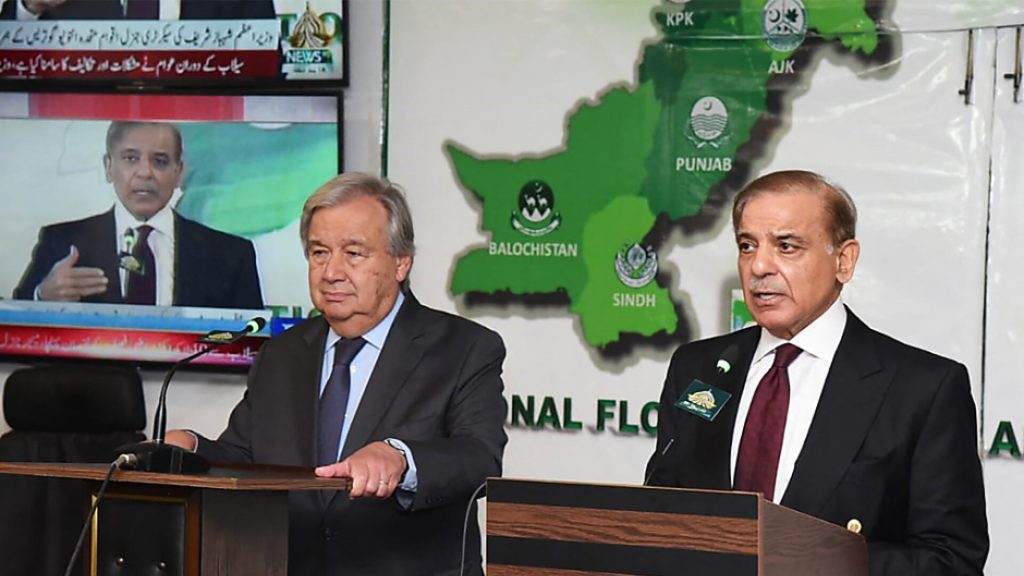
“Food practitioner. Bacon guru. Infuriatingly humble zombie enthusiast. Total student.”

Pakistan has experienced unusually heavy monsoon rains since mid-June. According to the National Disaster Management Agency (NDMA), a third of the South Asian country is already under water – and 1,391 people have died. Many others had to be evacuated from their villages, and roads and bridges were destroyed. The World Health Organization (WHO) warns of outbreaks of infectious diseases circulating in water. A total of 33 million people have been affected by the floods. Pakistan’s Treasury estimates the damages at $30 billion.
Climate change is hitting Pakistan on an unprecedented scale, Guterres said, noting the sheer scale of the devastation: “Families have lost loved ones, homes, crops and jobs.” Pakistan is one of the countries hardest hit by the climate crisis, but it has hardly contributed to it. “It is absolutely essential that the international community understand this, especially those countries that have contributed the most to climate change,” Guterres warned. Specifically, he calls for an immediate reduction in emissions. Guterres said that what happens in Pakistan today could affect any other country tomorrow.
Guterres had previously met Prime Minister Shahbaz Sharif and wanted to know more about the situation in the flood areas during his two-day visit. Sharif spoke of the “unlimited amount” of aid his country needs.

“Food practitioner. Bacon guru. Infuriatingly humble zombie enthusiast. Total student.”
More Stories
Kyiv: Russian Kursk offensive halted
US Presidential Election: Former US Government Officials Warn Against Donald Trump's Election
Netherlands wants to leave asylum system